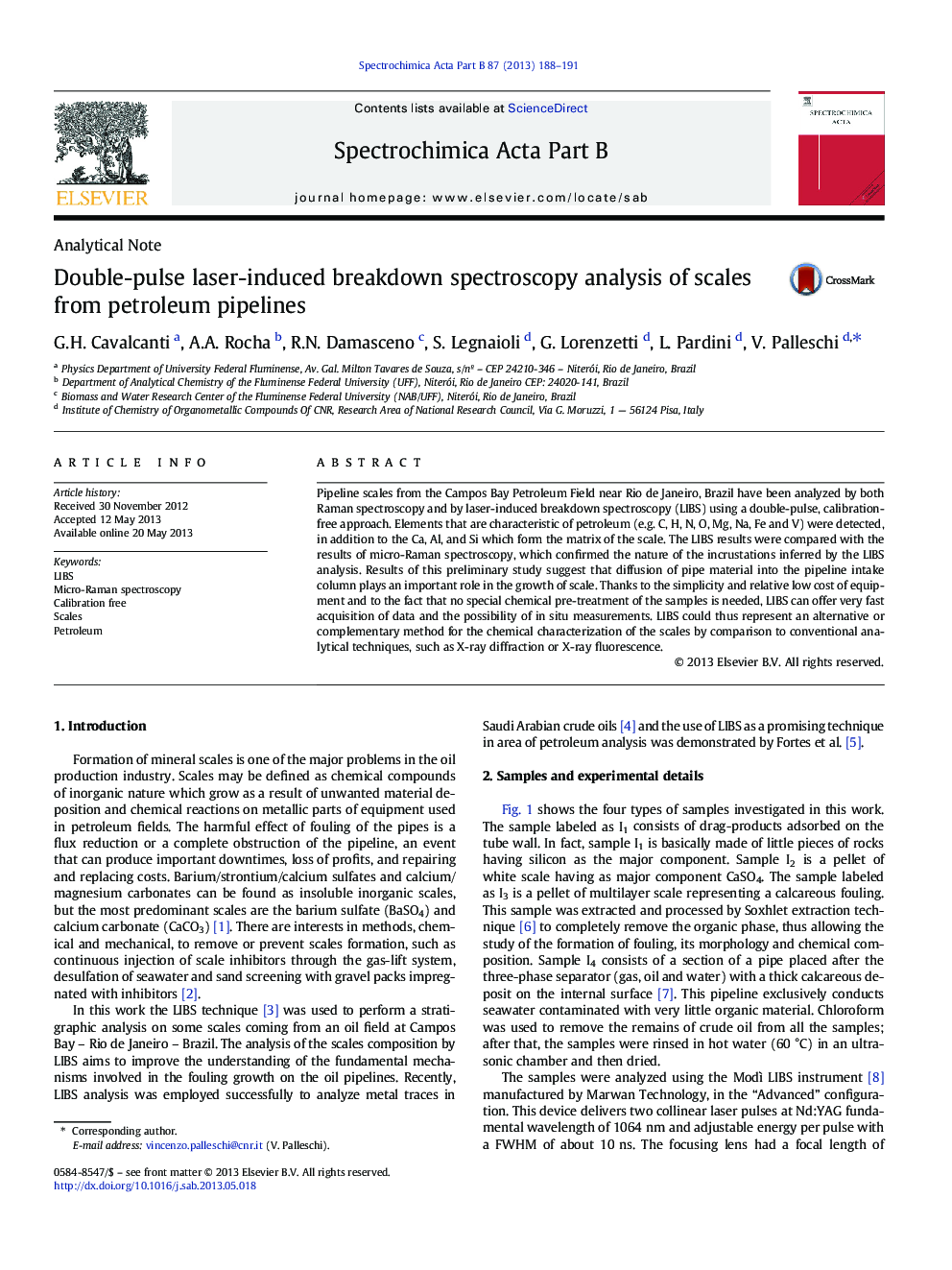| Article ID | Journal | Published Year | Pages | File Type |
|---|---|---|---|---|
| 1239929 | Spectrochimica Acta Part B: Atomic Spectroscopy | 2013 | 4 Pages |
•Samples of scales from petroleum pipelines were analyzed using double pulse LIBS.•LIBS is proposed as an alternative method to conventional analytical techniques.•The scale growth is influenced by the product of corrosion in the column of production.•The diffusion of pipe material into the inlay is important for the growth of scale.
Pipeline scales from the Campos Bay Petroleum Field near Rio de Janeiro, Brazil have been analyzed by both Raman spectroscopy and by laser-induced breakdown spectroscopy (LIBS) using a double-pulse, calibration-free approach. Elements that are characteristic of petroleum (e.g. C, H, N, O, Mg, Na, Fe and V) were detected, in addition to the Ca, Al, and Si which form the matrix of the scale. The LIBS results were compared with the results of micro-Raman spectroscopy, which confirmed the nature of the incrustations inferred by the LIBS analysis. Results of this preliminary study suggest that diffusion of pipe material into the pipeline intake column plays an important role in the growth of scale. Thanks to the simplicity and relative low cost of equipment and to the fact that no special chemical pre-treatment of the samples is needed, LIBS can offer very fast acquisition of data and the possibility of in situ measurements. LIBS could thus represent an alternative or complementary method for the chemical characterization of the scales by comparison to conventional analytical techniques, such as X-ray diffraction or X-ray fluorescence.
